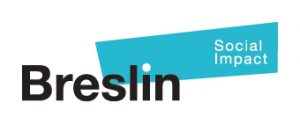A Series of Doors
Posted on 08 Sep 2013 under Children's Voices, Previous Publications
Young people talking about the experience of poverty
 Introduction and context
Introduction and context
In our work on poverty we have been struck by the extent to which the voices of children and young people continue to be excluded from debate about their experience. Much of the extensive current literature on child and family poverty is of high quality, pertinent and incisive, but comparatively little of it presents the voices of first hand experience; it is an expert literature, rather than an experiential one.
In winter 2012-2013, Breslin Public Policy was commissioned by the Office of the Children’s Commissioner for England (OCC) to organise a participative event for children and young people in poverty. This was part of the OCC’s work on child poverty and was planned with the support of the Child Poverty Unit (CPU) to listen to, and learn from, children and young people talking about what poverty means to them.
The event took place in February 2013. Thirty-seven children and young people attended from various parts of the country, aged between eight and 22 years. Together with OCC we were able to recruit a group of participants with wide-ranging experiences of poverty, and give them the opportunity to reflect on the issues. They were thoughtful, articulate, provocative and insightful. We submitted a report to the OCC from this event and this contributed to the OCC’s submission to
government on the measurement of child poverty.
Our full report provides more detail and context, and explains the methodology. This paper has been funded by Breslin Public Policy and is based on the work undertaken for OCC. It is not, however, part of any formal consultation process. Rather, it delivers on our commitment to the young people, and the supporting adults who accompanied them, to place their views and comments in the public domain. We have tried to do this authentically. To this end, while we are responsible for the section headings (Money, Access to services, Education, Employment, Community and home life, Aspirations, Access to transport, Networks), we have minimised the level of editorial comment and resisted the temptation to offer recommendations.
We have used direct quotations as recorded by stewards at each table during the event, together with some statements collectively agreed during plenary. In addition, we include written contributions made by the participants during a specially designed workshop activity on the day. The exercise required the participants to invent a character who faced a crisis, and to describe what happened to the individual as a consequence. The comments are not any less valid or powerful for being fictionalised. In several cases it would seem that real fears, and even perhaps personal experiences, were expressed which might not have emerged in straightforward conversation.
We wish to thank the staff at the OCC for their tireless support throughout this project. Our chief debt of course is to the young people who contributed to the process in an inspiringly positive and participative spirit: it was a privilege to work with them. Their energy and honesty deserves close and sincere support from all who have the power to help make a difference to their lives.




Comments